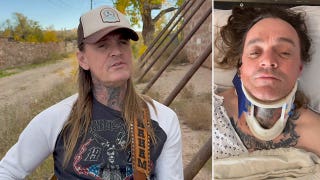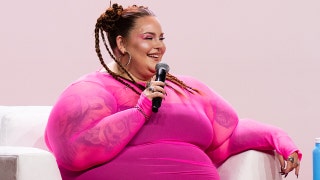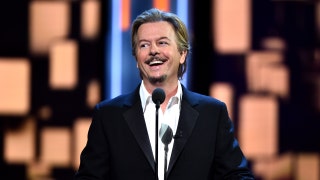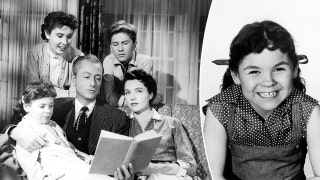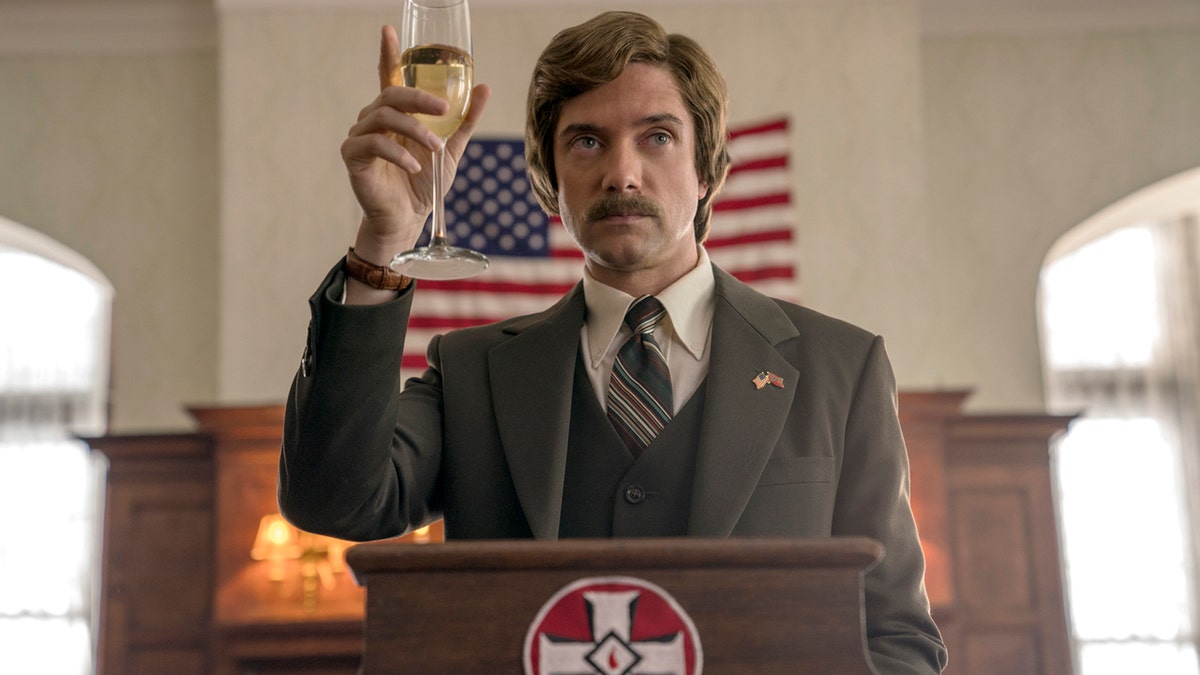
Topher Grace talks about the challenges of channeling Ku Klux Klan leader David Duke in Spike Lee's "BlacKkKlansman." (Focus Features via AP)
NEW YORK – Former “That 70’s Show” actor Topher Grace has opened up about playing “someone he hates,” as he portrays white supremacist and Ku Klux Klan leader David Duke in Spike Lee’s upcoming “BlacKkKlansman.”
"I can't say I've done that a lot — played someone that's even a real person, let alone someone I hate,” the actor told Fox News at the film’s New York press junket.
Grace explained how he prepared to take on the difficult role and get into the mindset of Duke.
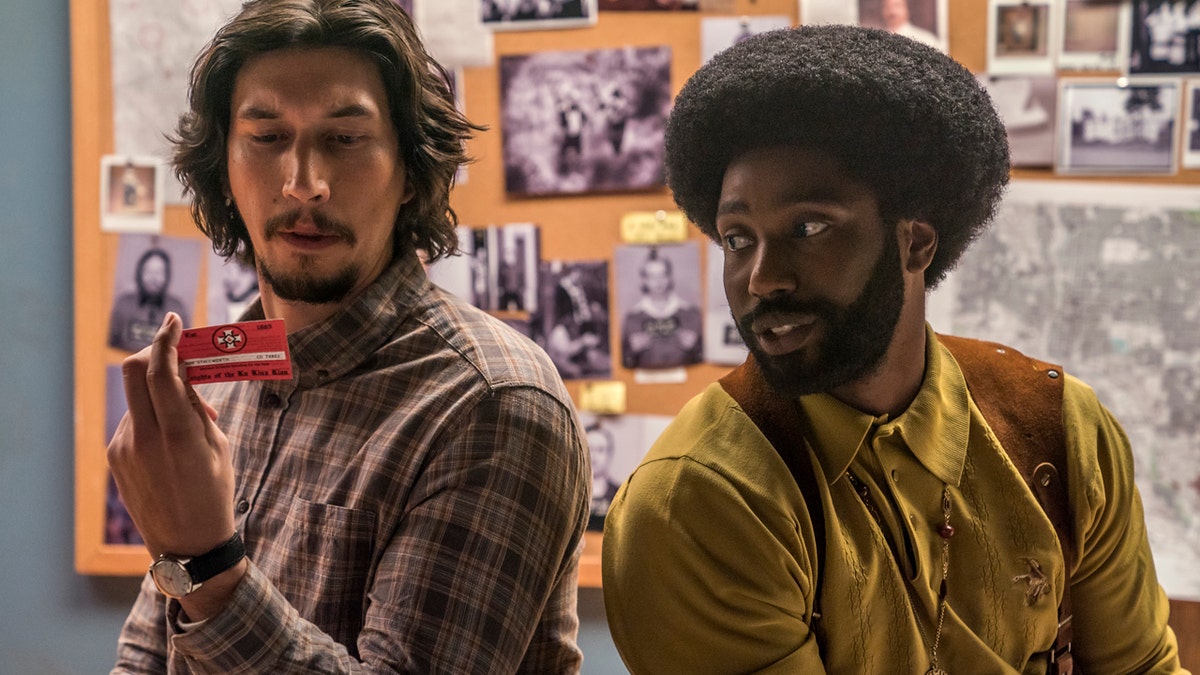
Adam Driver and David Washington play officers Flip Zimmerman and Ron Stallworth who trick the local KKK into an investigation. (Focus Features via AP)
"I've never played someone... that's so evil and it just led to the worst month of research that an actor can do,” he said. “I immersed myself in as much footage of him, I read his autobiography which is called 'My Awakening,' which is like a thinly veiled [Adolf Hitler's] 'Mein Kampf' and I watched him on Donohue — he was actually on Donohue a few times.”
But Grace told us the role was too good to pass up.
“It's really a juicy role for an actor," he said. "I guess what I was nervous about was the tone of the script, [which] was kind of both funny and devastating."
Grace said he went for it because Spike Lee was attached to the project.
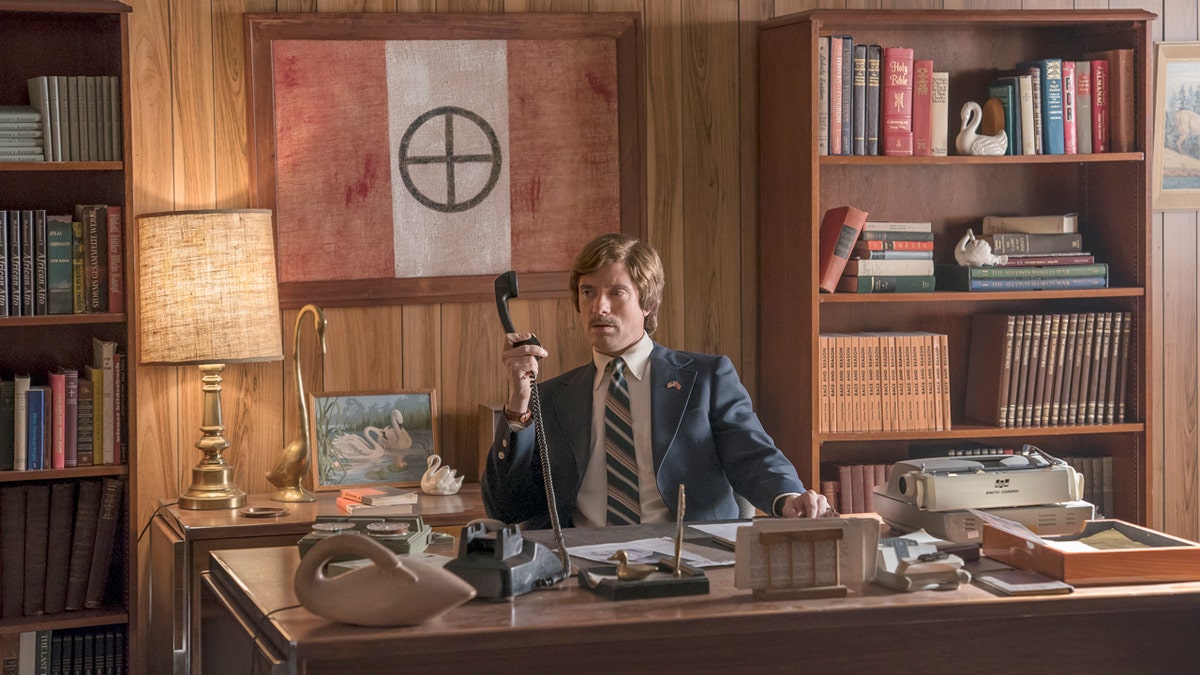
Grace talked about having mixed emotions about playing such a controversial figure but knew the role was too good to pass up. (Focus Features via AP)
"He's the greatest black director of all time," he noted, "and he's saying something really interesting here, so I already knew I was safe because it was going to be a Spike Lee film."
The film is a biopic based of the life of Ron Stallworth, the first African-American cop to serve in a Colorado precinct in the '70s, who teams up with his Jewish partner to infiltrate the Ku Klu Klan. Denzel Washington’s son, David Washington, plays Stallworth, who tricks the local Klan leader as well as Duke into believing that he is a white man willing to join the Klan through several conversations over the phone.
The actor added he experienced mixed emotions when he was offered the role.
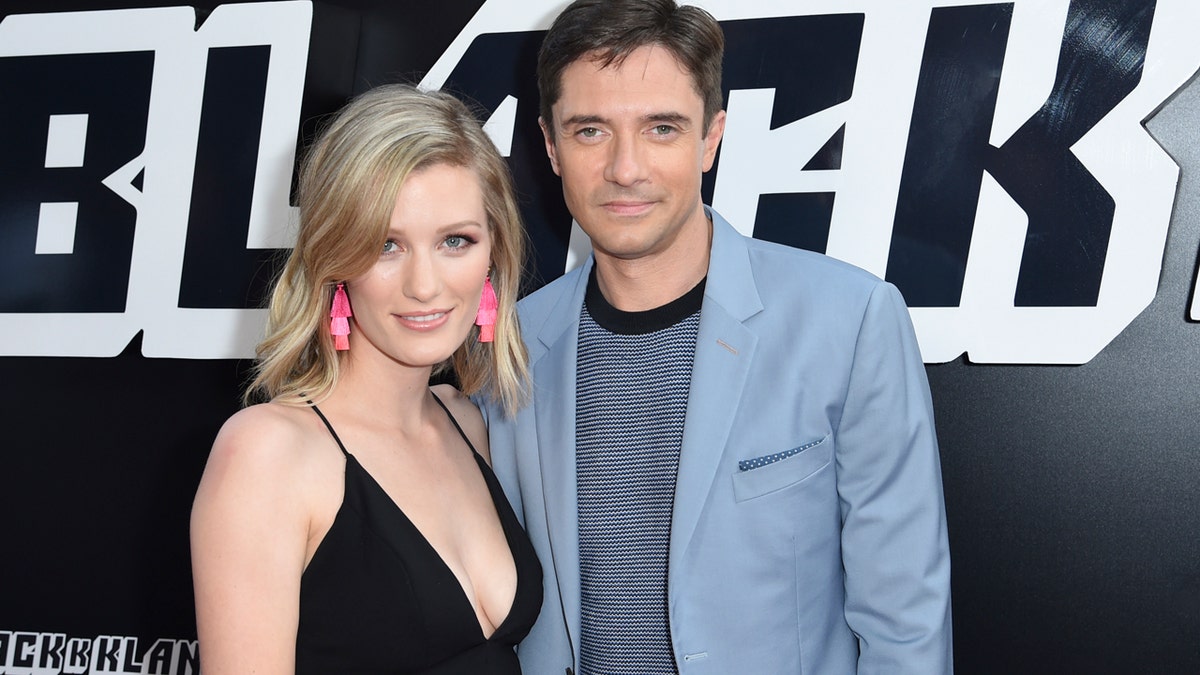
Grace and his wife Ashley Hinshaw at the Los Angeles premiere of "Blackkklansman." (AP)
“It's like the best moment of your career [when] Spike Lee calls you and is like 'I want you to play this role,' and then it goes into the worst month of reading all this crap,” he said.
[SPOILER ALERT: The remainder of this article will discuss the ending of "BlacKkKlansman."]
The film ends with a powerful transition from a KKK fire burning outside of Stallworth’s window to live footage from the 2017 rally in Charlottesville, Va. Spike Lee explained he wanted to show the extremes of racial tensions that are still present in current day America.
“My co-writer, Kevin Willmott, who took the job, knew that as storytellers, we had to put stuff in the film that connected to the present day so that people would not just look at us as a period piece, a history lesson,” Lee explained at the “BlacKkKlansman” press junket.
Grace weighed in and shared his opinion on the film’s heavy ending.
"I think it's sad that this film is more relevant now than it would have been when it takes place,” Grace said.
“The film does a good job of drawing a straight line — the first shot [of the film] is the Civil War [and] the last shot is 2017," he said. "And only just a master like Spike could draw that line through a movie."
"When I saw the audience at Cannes and their reaction when they started showing footage from Charlottesville — they didn't know it had gone from a fictional Klan rally to where the film ends, into Charlottesville. Everyone's breath was taken away when they realized this is footage from today not a Klan rally in the '70s.”
Lee’s “BlacKkKlansman” hits theaters Friday.



